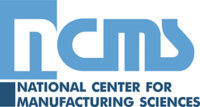CTMA Project #: 140414
Problem: As part of a condition-based maintenance program (CBM), performing oil changes based upon oil quality helps keep equipment in optimal condition and eliminates waste. Current technology largely involves collecting and shipping samples to centralized laboratories and awaiting results before taking maintenance action. At times subsequent samples are taken before the original samples are analyzed, making the results of the original samples meaningless. Even though field laboratories have been developed for in-theater use, they are costly and cumbersome to transport and sustain. The shipping and delay costs are even higher when offsite laboratories are used for large global regions.
With over 250,000 ground vehicles to service, the Army’s current practice of manually sampling oil from these vehicles at time or service-based intervals, sending the samples to the laboratory, and reporting the results back to fleet maintainers is an onerous process. Compounding this scenario is the fact that over 90% of oil samples comes back healthy indicating no further action required on the vehicle. The Army Chief of Staff has initiated the Army Transformation Roadmap which indicates the need for embedded prognostics in oil analysis systems and the application of CBM practices in the care of vehicle fleets.
Benefit: A better solution would be portable, hand-held analytical tools providing a lab-quality assessment suitable for real-time in-field use. The ideal device would give a soldier or mechanic the ability to determine oil quality on a real-time basis before or during a mission without messy and time-consuming sampling. The device would use the quantity of oil available from wiping the dipstick to perform a rapid screening test and immediately report the results in terms of a recommendation to change or keep the oil. Decentralizing oil testing will empower the field personnel to make informed decisions rather than waiting for a laboratory report. Furthermore, it eliminates the logistics tail associated with the shipment of samples.
Solution/Approach: This CTMA project is supported by the Joint Oil Analysis Program Technical Support Center (JOAP-TSC) which is chartered by the Air Force Materiel Command, the Army Materiel Command and the Naval Air Systems Command. The industry participants are proposing to work with CTMA and JOAP-TSC to develop a device specification and deliver sensors/devices for extensive test, evaluation and adaptation by JOAP for field analysis of lubricant condition. JOAP works with the Joint U.S. Services, Allied Nations, the Defense Logistics Agency, industry, academia and other agencies to coordinate fluid analysis and technical support. The goal is to provide standardized fluid analysis and technical support for condition monitoring of oil and other fluid wetted components to maintenance organizations. JOAP performs studies to recommend sources for standardization to improve DoD efficiency, economy, and productivity.
Impact on Warfighter: Hand-held/portable oil assessment devices will simplify oil analysis testing and support DoD efforts to reduce maintenance costs by effectively monitoring the oil condition in real time. These devices also eliminate the need for sample containers as a part of routine testing. Filling and shipping sample containers is a cumbersome, costly, and time-consuming process. Consequently, the implementation of these devices is expected to reduce labor hours and improve materiel readiness. It is anticipated that the warfighter’s equipment longevity would also be increased. In addition, such devices make off-site laboratories more cost-effective by concentrating their efforts on special/priority cases and reducing routine throughput.
DOD Participation:
- JOAP TSC (Phase I only)
- IPT
- NAVSEA
- Military Sealift Command
- U.S. Coast Guard
- U.S. Army (Langley AFB)
Industry Participation:
- SenGenuity, Inc.
- Decagon Devices, Inc. (Phase I only)
- Spectro, Inc.
- Smiths Detection (Phase I only)
- NCMS




